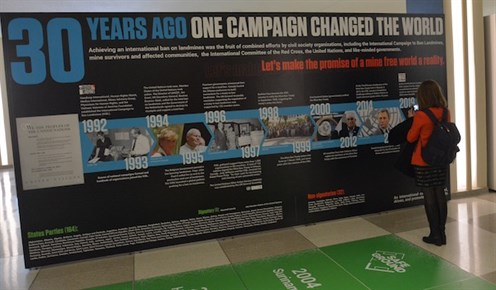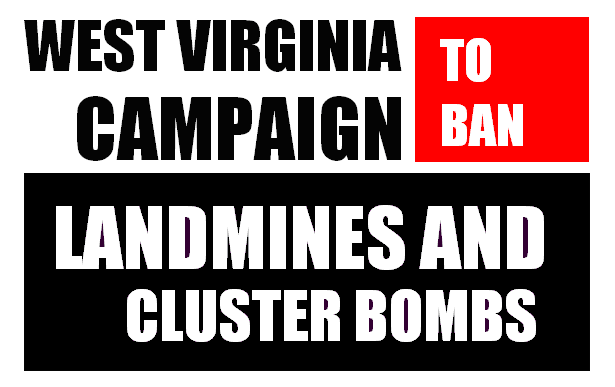
ICBL-CMC has been working with mine action partners to highlight 30 years of successful civil society mine action. The International Campaign to Ban Landmines was founded in 1992 by six organizations including Handicap International (now Humanity and Inclusion), Human Rights Watch, Mines Advisory Group, Physicians for Human Rights and the Vietnam Veterans of America Foundation. In 2011, the ICBL merged with the Cluster Munition Coalition (CMC) to become the ICBL-CMC – one organization with two separate campaigns on landmines and on cluster munitions.
ICBL-CMC worked closely with the United Nations Mine Action Service (UNMAS) in celebrating the 2022 #MineAwarenessDay events at United Nations HQ in New York including: the Safe Ground, Safe Steps, Safe Home symposim, exhibit , press conference, and a roundtable discussion with members MAG (Mines Advisory Group), Legacies of War and Geneva Call.
Read the ICBL-CMC Mine Awareness Day press release here https://bit.ly/37i3SZH.
Watch the #IMAD2022 statements from International Campaign to Ban Landmines Ambassadors Tun Channareth and Margaret Arach Orech.
In 1997, nations from around the world came together in Oslo to adopt the Mine Ban Treaty. In October of 1997, The ICBL (International Campaign to Ban Landmines) and Jody Williams were awarded the Nobel Peace Prize for their crucial role in starting a process that “in the space of a few years changed a ban on antipersonnel mines from a vision to a feasible reality.” In December 1997, total of 122 nations sign the Mine Ban Treaty in Ottawa, Canada. The 1997 Mine Ban Treaty, also known as the Ottawa Treaty, is a legally binding international agreement that bans the use, production, stockpiling and transfer of antipersonnel mines and places obligations on countries to clear affected areas, assist victims and destroy stockpiles. The Treaty is the best framework for solving the problems still posed by antipersonnel mines all over the world. The mobilization of thousands of ordinary citizens, through the International Campaign to Ban Landmines campaign network, played a crucial part in the adoption of this international treaty, and continues to play a central role in its universalization and implementation today. The Ottawa Anti-Personnel Mines Treaty would not likely have been possible without the sustained effort of thousands of global citizens writing their elected officials in the lead up to the treaty’s creation and signing in 1997. A small number of core groups mobilized on the landmines problem worked closely with a wider variety of non-governmental organizations, including churches, peace, disarmament and health organizations.
Banning landmines would have not been possible without great partnerships among civil society and governments. As Archbishop Desmond Tutu once said “if the Mine Ban Treaty has made a difference in the world, it is because the partnership between governments and civil society forged through the process that created the treaty has continued to this day”.
PSALM/WVCBL wish to extend their gratitude to campaigners around the world for their guidance and leadership in forging a more peaceful world for all.
